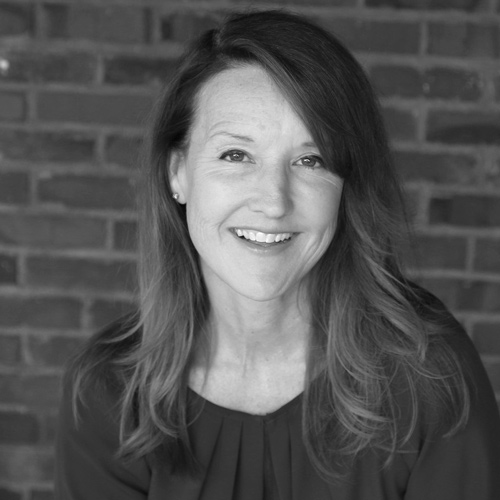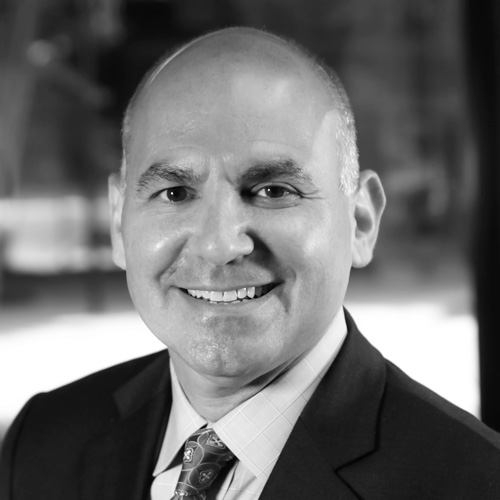The Ham
I’ve always had an acting itch that I’ve struggled to scratch. Back when I was a teen growing up in Milwaukee, I would take my parents’ seats at the Milwaukee Repertory Theater and witness amazing performances. I’m sure that was partially responsible for my interest in improvisational theater, which I did in high school.
Acting exhilarated me, but I was worried such pursuits might be ridiculous for an otherwise academically minded student. Nonetheless, my freshman year at Duke University, I successfully auditioned for an advanced acting class that consisted of aspiring theater majors—and me. It was a steep learning curve because my credentials and talent paled in comparison to some of my classmates, many of whom had been acting since they were quite young. Perhaps we weren’t of the same caliber, but jumping into such serious acting taught me a lot about confidence, and I definitely had some pretty solid performances during the year.
Laying Down the Law
As I explored possible careers, I ultimately gave into my left brain. Going to law school was initially a stepping-stone to buy time while I thought about other possible careers. I was convinced I could use a law degree for many opportunities. Little did I know that my pursuits would begin and end with practicing law, for the most part.
I started my legal career in private practice as a litigator, thinking that perhaps “performing” in the courtroom would cure my acting ache. I enjoyed the practice for a number of years, though I was often frustrated by the silly gamesmanship of the discovery process. Fast-forward to 2002: I was at Wallace Computer Services, Inc., initially recruited to run litigation. I eventually expanded my practice with the company to general counsel. When it went through a major senior management turnover, I was handed a severance package that spanned the summer. It struck me that it might be fun to reengage on the acting front.
I started taking theater classes at a professional theater company called Apple Tree and then got into classes at Piven Theatre, which was started by Jeremy Piven’s parents and has nurtured actors like the Pivens, the Cusacks, Aidan Quinn, and Kate Walsh. Long story short, I started working the rust out, though it was hard to shake the left-brain tendencies and free up the creative side. At one point, my classmates dragged me to an audition for a professional show at Apple Tree. I was the one among us who ended up getting cast in this old Eugene O’Neil play that I had never heard of.
I played several characters in “Anna Christie” that fall. The show’s run lasted about a month, and I was the only nonprofessional actor in the show. I didn’t know how a lawyer masquerading as an actor would be received, but the cast was very accepting and took me under their collective wings. It was great fun. I can always say that I was a paid actor!
First-Time Jitters
My first night on stage was exhilarating. There was a lot of physicality with these parts. I remember at the start of the show I played a mailman who was going to a bar during his mail route. I did little things that actors do to get relaxed and more into character—like run up and down the steps of the theater building before I had to go on stage to actually make it seem like I was at the end of a long mail route. I was out of breath and sweating, but it worked for the part and calmed me down. For another part, I played a sailor who gets rescued after being tossed overboard. Before emerging on-stage, I had to jump in a shower with my clothes on—drenched head-to-toe—to make it look like I had been adrift at sea. And I got to spit up water all over the stage!
Right Brain or Left?
Toward the end of the show’s run, I was applying more seriously for law jobs. I was also auditioning for a lead role in a new play. I got the part, and, of course, the next day Experian called me with a job offer. I realized I couldn’t commit to such a demanding acting part while starting a new job.
I’ve been practicing law ever since. Of course, I wonder what it might have been like if I had continued my thespian pursuits. Acting has definitely given me a great creative outlet and also confidence that I continue to use in my legal practice.
Scratching the Itch
The theater itch is still there, but now I scratch it by being on the board of a nonprofit called Erasing the Distance. The organization destigmatizes and educates about mental health issues through professional theater. We use some of Chicago’s very best actors and perform the true stories of those impacted by mental health issues. I’ve been on the board for the past 10 years or so and just stepped down as board president.
Data Driven
David Strauss on the demands and ethics of data privacy while working at a global information services company.
Modern Counsel: What is your role at Experian?
David Strauss: I engage in a general counsel role for multiple business units at Experian. Plus, I wear the hat of chief intellectual property counsel for our North America business. I see all the types of legal matters any large business faces and truly never know what the next phone call or e-mail may bring my way. I’d have to say that data privacy is the most dynamic area of my practice.
MC: Why are data privacy and the ethical use of data so important in today’s world?
DS: “Big data” is the term most people hear these days. In my world, it boils down to the slicing and dicing of consumer data to better understand consumer interests and behaviors. Consumer data has become a very valuable corporate asset. We are generating astronomical amounts of data as consumers these days, driven in large part by the online, digital world. As companies get smarter, this data is increasingly richer and more predictive. Acquiring and using the data responsibly is of utmost importance. Consumers have to understand and trust that their data is being used for benefit and not detriment—or, as we say, using “data for good.” Privacy has always been essential to Americans, but so is free enterprise. My job is frequently at the intersection of these core pursuits, and I want to make sure they exist harmoniously.
MC: What are the biggest challenges in working with big data and privacy?
DS: Unlike some areas of law that have been around for a long time and don’t change that much, such as maritime law, the realm of data privacy is constantly changing, especially with the rapid evolution of technology. I have heard that more data is created in less than two days than existed in the entirety of human existence up to the year 2000. Consumers are often uncertain about how their data is used and whether they like it. I’m not sure they fully appreciate how much value they get from companies making responsible use of big data. Add to the mix the patchwork of data privacy laws that exist around the world, and it all makes for a very interesting practice area.
MC: How does Experian remain a leader on the data privacy front?
DS: For starters, Experian bakes consumer expectations and interests into our business. It’s a core company value. We have a very robust data privacy compliance program that forms the backbone of our business pursuits. For example, when we explore many new products and services, we have a “fair information values process” to help us assess consumer privacy concerns. We convene mini task forces of subject matter experts from around the company to analyze and discuss privacy issues and make considerations such as, how a proposed product might be used by our clients, the product’s potential for adverse impact on consumers’ privacy, and what can be done to ensure responsible product usage. We have to lead by example. There definitely have been business opportunities that Experian has passed on because we didn’t feel comfortable with the data privacy concerns the posed. We know that our competitors have jumped on some of these same opportunities. I think that’s very telling of us as a company.
MC: What is your ethos about data privacy?
DS: Data is clearly driving so much of our economy. Most consumers do not truly appreciate this. They just enjoy the products and services and don’t focus on the how or why. They don’t think about the fact that Google or Facebook are free to them or that they can readily borrow money to buy a car or home because companies share their data responsibly. If overly burdensome regulations were placed on consumer data sharing, our economy as we know and enjoy it would drastically change. I’m at the crossroads of both a quickly evolving business and consumer privacy issues, and I believe that those of us in this unique position have to be very careful in making sure consumer data is used responsibly so that we can get the best of both worlds: wonderful benefits to our lives without abusive data practices hurting us. In other words, “using data as a force for good.”


